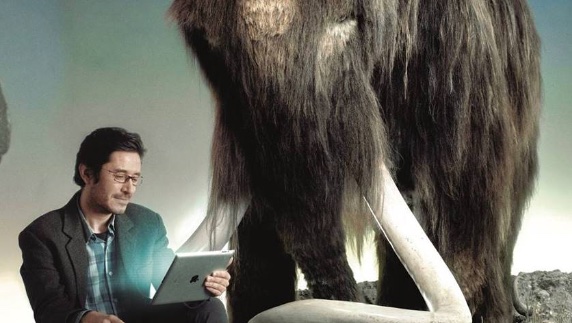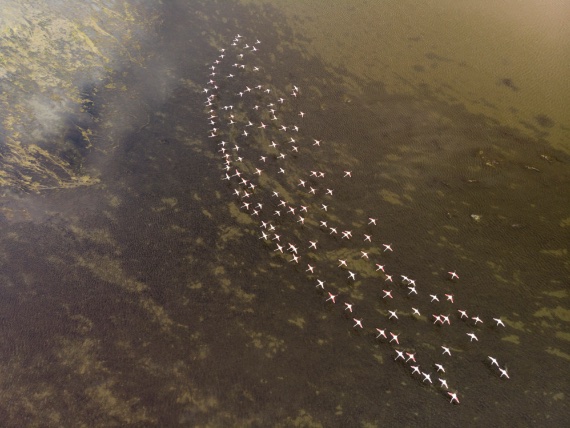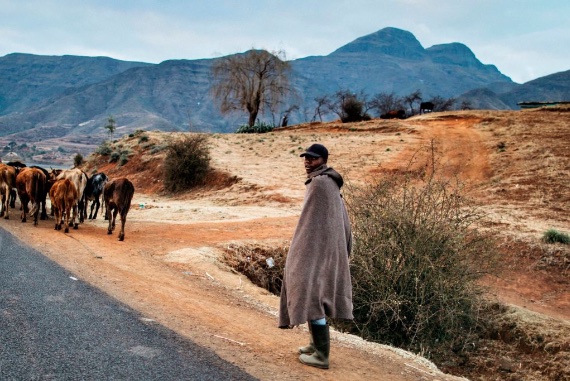David Nogués-Bravo, a macroecologist, talks about how to anticipate future global crises, how they will increasingly affect our health and how to avoid greater harm by better educating the population.
Looking to the past to predict the future. Perhaps this is what many fortune tellers actually do when they tell us what fate has in store for us. Our evolution and our behaviour may well shape our future. This idea forms the basis of the work of David Nogués-Bravo (Zaragoza, 1975), a macroecologist and professor at the University of Copenhagen, but with respect to the future of our planet. The researcher says that his greatest challenge is to discover “what the laws are that govern nature in order to better predict the biodiversity crisis and its effects on our societies.”

Passionate from an early age about the changes he saw occurring in the mountains and valleys he frequented with his parents, he began to wonder about the origin of these variations and, in particular, the degradation he was seeing. To find out for himself what was going on, he wrote his thesis on the subject at the Pyrenean Institute of Ecology, part of the Spanish National Research Council. Since then, he has observed not only the changes that nature is undergoing, but also “that our societies, which depend on the resources and functions provided by ecosystems, are being negatively affected by the impact of factors such as climate change and deforestation,” he explains. “The need for our societies to understand and anticipate how we are affected by environmental degradation and biodiversity loss is a constant motivation for my research and that of many other scientists,” says the macroecologist.
“Education at all levels of schooling is the key to helping our citizens understand the dangers of the environmental crisis and the solutions to help reduce them”
But how does he do it? “We can dissect and compare periods of past environmental change with more stable ones to understand how climate change or changes in land use have modified biodiversity and ecosystems in the past. There are many examples in other disciplines that also look to the past to predict the future. For example, time series of stock market changes are used to predict possible future market responses.”
The risk of the return of diseases that have already been eradicated
Current and future human health and food security are closely tied to environmental crises. Scientists link these to the increase in deaths and diseases caused by the rise in extreme weather events, such as heat waves, severe storms, floods or prolonged droughts. “Global changes in climate and land use are also forcing species to occupy different habitats, leading to greater interaction between humans and wild and domestic animals, increasing the risk of zoonoses. Tropical diseases long eradicated from Europe, such as malaria, may also return,” he says.
“There are many examples in other disciplines that also look to the past to predict the future. For example, time series of stock market changes are used to predict possible future market responses”
It is difficult to identify the greatest risks to human health, says the macroecologist, but he does mention one aspect to which we should pay particular attention: “The increase in zoonoses (diseases or infections that are transmitted between animals and humans) could accelerate the emergence of new pandemics, because most pandemics are caused by zoonoses,” he says.
He goes on to warn that there are also other risks that go unnoticed. “Part of my research involves assessing how the extinction of plants due to climate change and land-use changes reduces our ability to find and develop new drugs from the bioactive compounds of those plants that are threatened with extinction.”

So is COVID-19 an example of the risks we will face? “Yes,” says Nogués-Bravo, “the COVID-19 pandemic is a good example of a global crisis originating in the degradation of the natural world, and one that could be repeated in the coming decades.”
Helping people understand the dangers
But beyond this research, it is perhaps possible that human behaviour, which has caused many of these extreme phenomena, can also help to remedy them. “Education at all levels of schooling is the key to helping our citizens understand the dangers of the environmental crisis and the solutions to help reduce them,” says the researcher. He leads by example: “Right now, here in Denmark, we are developing, together with the Ministry of Education, a course on biodiversity and global change that will be taught in all Danish high schools.”
“Ecology and other disciplines, such as climatology, can now speak the language of money and politics. Concepts such as ecosystem services help us, for example, to link knowledge about the biological aspects of ecosystems with the economic and social values they provide”
At the recent UN Biodiversity Conference (COP15) in Montreal, an agreement signed by 188 countries set out concrete measures to halt and reverse the loss of nature. “However, to achieve this goal, we need to mobilise at least 200 billion euros,” he says, “as well as a strong political commitment in each of these countries to finance and develop the necessary changes.”
According to the macroecologist, something has changed in recent decades in the way messages are transmitted from the research world to the political and social powers: “Ecology and other disciplines, such as climatology, can now speak the language of money and politics. Concepts such as ecosystem services help us, for example, to link knowledge about the biological aspects of ecosystems with the economic and social values they provide.”
Limits must be placed on alterations to nature
One of the main messages that should be conveyed to politicians and the public, according to the researcher, is that there are certain limits that cannot be crossed when it comes to altering nature. “On the one hand, we must protect the planet’s remaining ecosystems and plant and animal species on the planet, and on the other hand, we must reduce the factors that lead to the loss of biological diversity and ecosystem functions. If we allow the biological and climatic systems that make up the planet to go beyond the limits of change and degradation under which our societies have developed, we will face worrying consequences.”

Nogués-Bravo concludes by recalling an experience he had as a doctoral student in Lesotho (a landlocked country surrounded by South Africa) that left a strong impression on him, concerning the impact of the environmental crisis on the local population. “More than 20 years ago, when I was a PhD student, I was researching the consequences of global change on the inhabitants of the mountains of Lesotho. These communities were largely dependent on livestock grazing in the fields for food and livelihoods. Increased storms due to climate change led to greater soil erosion and the loss of pastures where livestock grazed. This meant greater poverty and less access to food, making people more susceptible to disease, with a greater impact on the elderly and children. The lesson is that the interaction between the natural world and human societies, and the degradation of nature, has consequences that affect us negatively.”
Comments on this publication